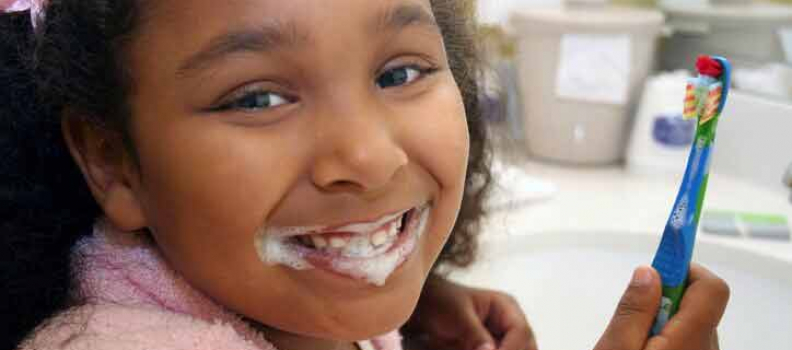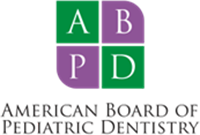Just as kid's oral care needs change as they grow, so do the potential dental issues they may encounter. Understanding what these problems may be can go a long way toward helping both children and their parents do what is necessary to prevent them in the first place.
Here are common dental issues we see in school-aged children (5-11 years old):
 1. Bye-bye, baby teeth; hello, Tooth Fairy: The first baby tooth – usually one of the middle front teeth - is typically lost at around six years of age. Molars are usually lost between age 10 and 12 and replaced with adult teeth by about age 13. If a baby tooth doesn’t loosen sufficiently on its own, your pediatric dentist may suggest extracting it.
1. Bye-bye, baby teeth; hello, Tooth Fairy: The first baby tooth – usually one of the middle front teeth - is typically lost at around six years of age. Molars are usually lost between age 10 and 12 and replaced with adult teeth by about age 13. If a baby tooth doesn’t loosen sufficiently on its own, your pediatric dentist may suggest extracting it.
 2. Tooth Decay: Although largely preventable, tooth decay remains the most common chronic disease of children aged 6 to 11. It can occur in both baby and permanent teeth and is caused by acids wearing away the tooth’s hard surface layer, called enamel. Diet plays a key role in kids’ dental health, specifically limiting sugary liquids such as sodas, juices, and sweet tea.
2. Tooth Decay: Although largely preventable, tooth decay remains the most common chronic disease of children aged 6 to 11. It can occur in both baby and permanent teeth and is caused by acids wearing away the tooth’s hard surface layer, called enamel. Diet plays a key role in kids’ dental health, specifically limiting sugary liquids such as sodas, juices, and sweet tea.
Brushing twice a day with a fluoride toothpaste, using a fluoride mouthwash, and flossing between teeth all can help to prevent tooth decay. Dental sealants are a valuable tool that helps your dentist prevent tooth decay. Sealants are a clear or white coating that is painlessly placed over the grooves of teeth to prevent plaque and food from getting stuck and causing cavities.
 3. Gum Disease: Gum disease, or gingivitis, is the inflammation of the gum tissue caused by poor oral hygiene and plaque accumulation. Indicators of gum disease may be bad breath, a bad taste in the mouth, or bleeding gums, especially after flossing. Over time, it can lead to tooth loss and bone damage. Regular visits to your dentist are an important part of preventing gingivitis.
3. Gum Disease: Gum disease, or gingivitis, is the inflammation of the gum tissue caused by poor oral hygiene and plaque accumulation. Indicators of gum disease may be bad breath, a bad taste in the mouth, or bleeding gums, especially after flossing. Over time, it can lead to tooth loss and bone damage. Regular visits to your dentist are an important part of preventing gingivitis.
 4. Teeth Grinding: Teeth grinding, also known as bruxism, is common in school-aged children and usually doesn’t require treatment, as it typically stops as they age. However, if it continues, it can cause headaches, as well as tooth and jaw pain, and it can wear away teeth. Devices such as night guards can help to protect teeth from grinding. These devices are provided by your dentist.
4. Teeth Grinding: Teeth grinding, also known as bruxism, is common in school-aged children and usually doesn’t require treatment, as it typically stops as they age. However, if it continues, it can cause headaches, as well as tooth and jaw pain, and it can wear away teeth. Devices such as night guards can help to protect teeth from grinding. These devices are provided by your dentist.

5. Thumb Sucking According to the American Dental Association, most children stop sucking their thumb on their own between the ages of 2 and 4. Most effects of thumb-sucking can be reversed up to the age of 5 or 6, because kids still have their baby teeth. If the habit continues once permanent teeth come in, it can lead to dental problems.
At Charlotte Pediatric Dentistry, our goal is to provide the best dental care for your children and to guide you as you make dental care decisions through every phase of your child’s life. Visit our website for more information, or call (704) 377-3687.









